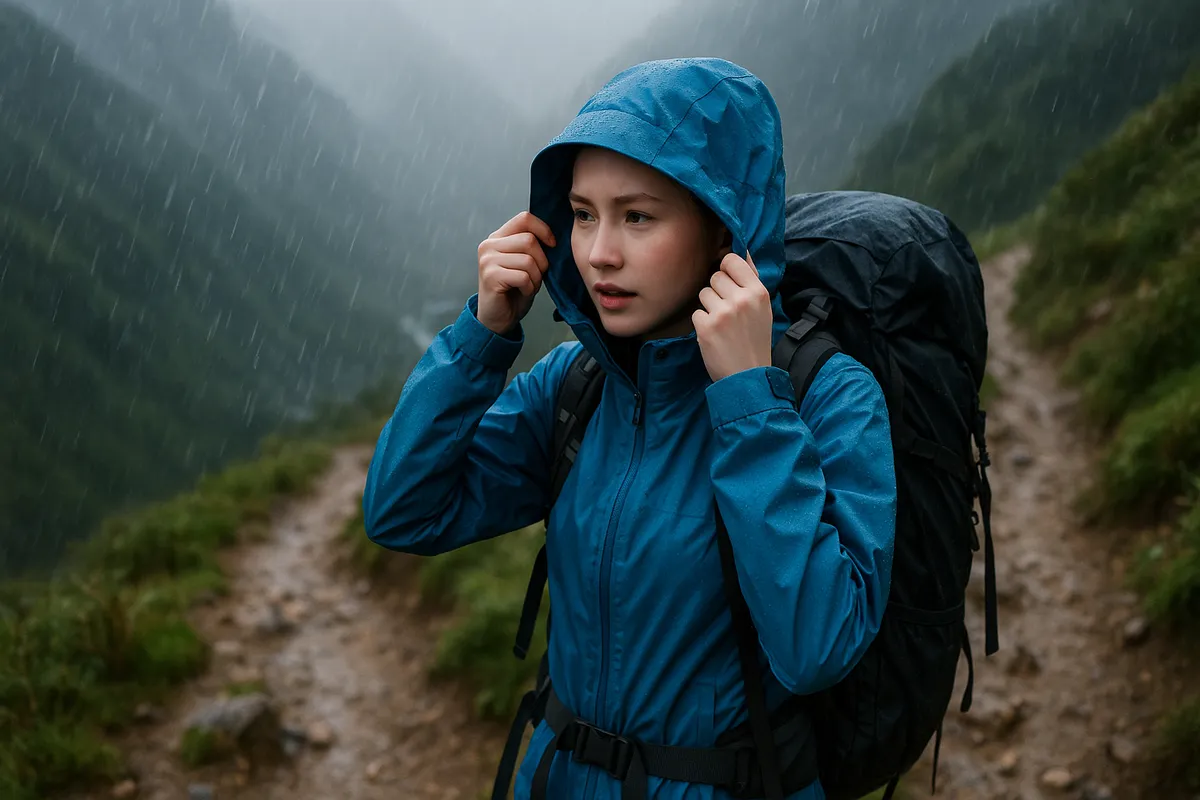What should you prepare for traveling during the storm season?
- Friday, Jun 27, 2025, 19:53 (GMT+7)
What should you prepare for traveling during the storm season?
No one ever plans a vacation hoping to be trapped in rain and wind. But in tropical countries like Vietnam or across Southeast Asia, storm season is part of the experience. Some travelers avoid it completely. Others pass through with minor delays. But there are always those who get caught off guard. For young explorers with limited experience, a trip can quickly turn stressful or even dangerous if they are not prepared for what the weather might bring.
Storm season is not just about a few showers or gusts of wind. It often brings power outages, flooded roads, transportation cancellations, and in mountain regions, even landslides. There are stories of tourists stranded on islands because boats could not depart, or losing days of their trip due to an unexpected storm hitting the area. Many people have shared their own struggles in travel groups, such as luggage soaked in rain, navigation apps failing during bad weather, or spending nights in airports after repeated flight delays.
The first and most essential rule is to keep your travel plan flexible. Avoid tight schedules. Do not fix every destination to a specific time slot or book services that are non-refundable. Just one delay in transportation could throw off your entire itinerary. Those who have traveled through stormy seasons know that it helps to leave at least half a day of buffer between destinations. Always look for accommodations and tickets with flexible policies in case you need to reschedule.
It may sound like a small detail, but the kind of luggage you bring really matters. Soft backpacks made of fabric can soak through quickly during heavy rain, ruining clothes, devices, and documents. A hard-shell suitcase with a water-resistant surface and a plastic rain cover is a smarter choice. Travelers with more experience also recommend bringing zip bags to protect essentials like passports, phones, power banks, and cameras. A moisture absorber in your camera pouch can also help prevent lens fog or mold after long periods of humidity.
Keeping up with weather updates is a must. General forecasts for a large city might not reflect the exact situation at your destination. Focus on hyper-local reports instead. There are many cases where apps show all-day rain, but on location, the skies are clear until late afternoon. When that happens, it is important to make the most of the dry hours. Plan short activities in the morning and stay flexible in the afternoon. Avoid hiking or traveling to remote areas with poor shelter options.
Choosing the right place to stay during storm season is critical. Do not choose cheap homestays that sit right by the beach or at the foot of a mountain. These places might offer beautiful views, but they are the first to face danger when waves rise or winds increase. The safest option is a building located at least 500 meters away from the sea, on high ground, and with solid drainage. If you ride a scooter, avoid hotels with underground parking because a single night of flooding could submerge your vehicle.
If your trip involves frequent movement, always carry a dry set of clothes sealed in a waterproof pouch. Being forced to sit through a bus ride in wet, cold clothing is more than uncomfortable. It can lead to sickness. Lightweight jackets with hoods that dry quickly are ideal. Disposable ponchos can work in an emergency, but they tear easily and should not be used for more than a day.
Do not rely entirely on electronic devices. Storms can knock out electricity for hours, even days. Carry a fully charged power bank and, if possible, bring a solar charger. A small flashlight with dry batteries is another must-have item. There have been cases where travelers were stuck in mid-range hotels without power, surrounded by rising water, and no working light. These situations are not just inconvenient. They are dangerous.
Always pack basic food and water supplies, even if you do not plan to camp. Instant noodles, snack bars, and one or two large bottles of water can be a lifesaver if you are stuck in your hotel room with no access to food services. In strong storms, even nearby restaurants might close. Do not depend entirely on others for your meals.
One underrated but essential habit is to share your travel plan with a friend or family member. Send them your hotel addresses, planned destinations, and transport schedules. If you go off the grid or lose your signal, someone will know where you are. There was a case where a group was stranded on an island for three days. Their phone service failed, and no one back home knew how to reach them.
Most importantly, know when to cancel. If weather conditions become too severe, walk away from the plan. Your safety always comes first. Losing money on a room or ticket is better than risking your life. Many serious accidents have happened because people insisted on continuing trips during storms. Learning when to stop is a true sign of a responsible traveler.
Traveling should be joyful. But during storm season, making smart decisions is the key to enjoying your journey. When you return home with your health intact, your gear undamaged, and a sense of pride in overcoming obstacles, that is what makes a trip truly memorable. Not because the sun was shining, but because you walked through the storm and came out stronger.

 CHECKIN.VN
CHECKIN.VN








Share on